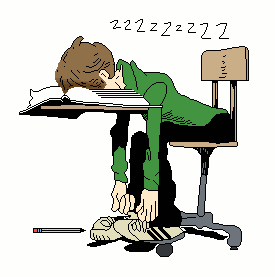For university students, balancing studies with time spent with your significant other can be fairly difficult. However, it is not the most prohibitive task they endure. Balancing school work with your sleep can be one of the most difficult things, as a student, to manage. It is suffice to say that through the progression from elementary to secondary school, and now to university, a vast majority of students can attest to the decrease in the amount of sleep they get each night. Most students’ can admit to falling asleep during lectures or even dozing off while studying. The matter in question is; how much of an effect does this lack of sleep have on grades? Studies show that the less sleep students get, the more their academic performance suffers.
One of the more recurring opinions regarding the lack of sleep university students get is, “I just don’t have the time”. Taking into account that most students wake up early for lectures, commute to and from campus, stay up late doing assignments and studying for a number of exams is reason enough to blame time constraints. Add in a part time job to pay for their tuition, along with a modest social life, these claims undoubtedly justify that they simply don’t have enough time to get the sleep required to sustain quality academic performance.
According to Medical News Today , only 30% of students get the required 8 hours of sleep a night, 20% of students pull an all-nighter once a month, 30% stay up past 3:00am and 12% of these students miss class three or more times a month. The main cause for students staying up late is the stress of having to do well in school. This stress can then affect their sleep, more so than relying on drugs such as alcohol and caffeine.
Youtube video from a BBC article explaining how lack of sleep impairs learning.
Ultimately, it comes down to a student’s preparedness regarding how much sleep they’ll get in a given night. As outlined in this article from the UBC website, students must rid themselves of the notion that less than eight hours of sleep is sufficient enough to perform well in school. Focusing on getting a healthy sleep and to keep the mind fresh should be a primary concern for all students. Developing a consistent and healthy sleep schedule, mapping out your day, while avoiding drugs like caffeine and alcohol, should help with falling asleep comfortably and lessen any chance of facing academic repercussions.
Youtube video from Watch Well Cast explaining ways to sleep better.
– Inderbir Bhullar




One response to “Sleep? Who has time for that?”